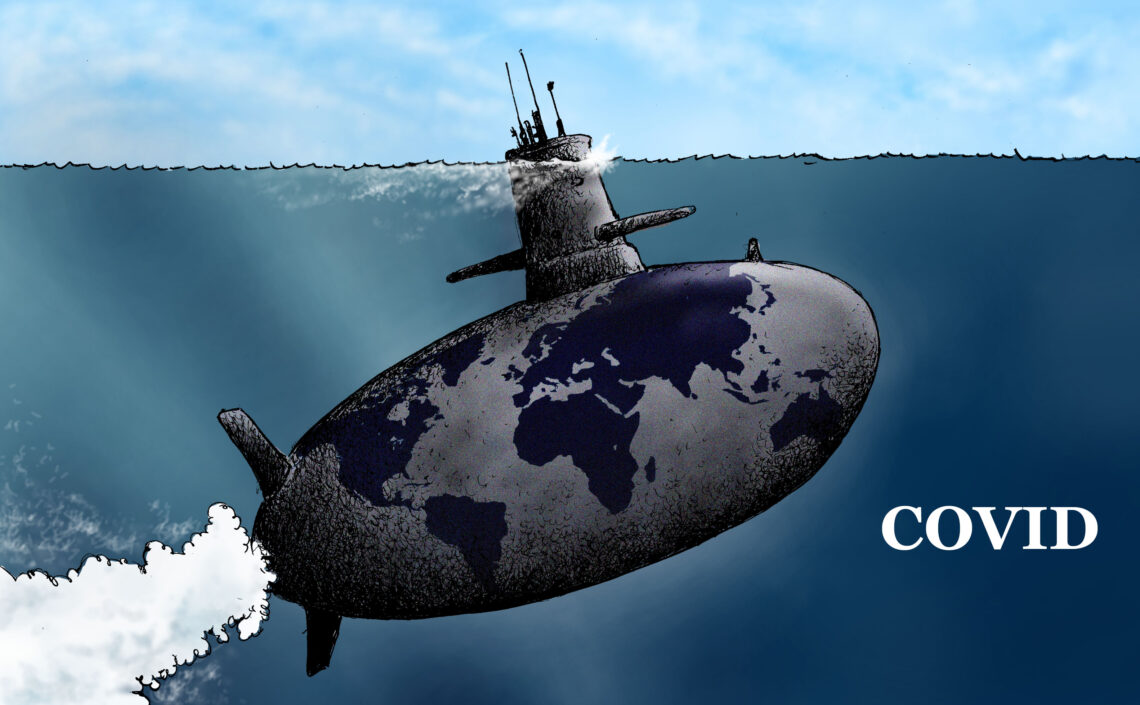Covid-19, a catalyst toward more freedom?
Most governments have enacted emergency measures to fight Covid-19, but it is often unclear when these freedom-curtailing powers will be revoked. To avoid going down the path of authoritarianism, it will be up to citizens to take their fate into their own hands.

2020 was a strange year. A new virus emerged. First perceived as China’s problem, it soon swept over the globe. The Western world – no longer used to severe crises – panicked. Strict measures were taken. Governments were then frequently blamed for having adopted the wrong strategies. But this criticism is not the right approach. The Western world was simply not prepared for any major crisis. Governments had already assumed too many duties and powers, to the detriment of individual responsibility, and had also neglected systems of civil protection. Political systems were unprepared.
As a result, governments started to declare emergency powers that encroached on citizens’ freedom. Unfortunately, we are now faced with the threat of a “new normal,” a post-Covid world where these restrictions will remain instead of a return to civil rights.
Dangerous emergencies
In early December, Secretary-General of the United Nations Antonio Guterres requested that countries around the world declare a global emergency because of concerns over climate change. A state of emergency is a very serious matter, as it allows governments to severely limit individual freedom and implement measures without the democratic approval of parliaments. Such exceptional situations have often been misused, turning democracies into dictatorships.
This newly declared climate emergency disregards the fact that citizens, businesses and governments are aware of the issue, and are increasingly owning up to the responsibility of reducing man-made pollution, waste and emissions. States of emergency can be the right strategy in exceptional cases, when foreseen by constitutions and enacted with a clear expiry date.
Both the Covid-19 and climate debates have been characterized by intolerance.
Citizens are already under pressure because of Covid-19 emergency measures. Many are justifiably concerned over the use of tracing apps against the disease, since they are likely to remain after the pandemic as a tool to monitor people’s activities. This would be done under the guise of fighting crime and terrorism.
In Europe, telecommunication and internet providers already have to store all communication data for two years and provide them to authorities upon request. This means every citizen on the continent is treated as a criminal suspect – a situation that violates human rights, according to the European Court of Justice. Nevertheless, the law is applied everywhere in Europe. With Covid-19 as a pretext, tracing apps would be the logical continuation of these unlawful and authoritarian practices. In the United States, the Patriot Act, signed into law after the 9/11 attacks, infringes on civil rights and remains in force to this day.
Salutary crisis
Introducing a global climate emergency would result in a permanent state of affairs. Man-made pollution and waste as well as excessive gas emissions are a grave concern. However, the debate surrounding these issues has regrettably become doctrinaire and irrational. It is highly problematic to declare a state of emergency with long-lasting consequences with matters pertaining to the environment: nature is in constant flux and changes in ways that cannot be predicted.
Both the Covid-19 and climate debates have been characterized by intolerance. There is no respect for dissenting opinions, and some viewpoints are presented as dogmas without alternatives.
The ‘great reset’ now proposed is a step toward planned economy.
The UN Secretary-General plans on introducing a second set of emergency measures, which would affect civil rights globally. This is perhaps unsurprising. Several members of the organization are authoritarian states, and many self-proclaimed “liberal democracies” are becoming increasingly repressive. One could even come to the conclusion that lockdowns – and other measures that go beyond the caution and prevention certainly needed to tackle the virus – are also being misused. They allow the administrative and bureaucratic spheres to test their power to curb individual freedom.
The “great reset” now proposed by many so-called influencers is a step toward planned economy, authoritarian states and control of citizens. In their arrogance, these technocrats guarantee us that such a future would save the planet and provide equal prosperity for all under the “new normal.”
These reactions show that the world was ripe for a crisis. The challenge will now be – and I am optimistic – to return to a system based on liberty, freedom of choice, common sense and personal responsibility. “Liberal democracies” have long been on a train toward a centralized bureaucracy and technocracy. The 2020 shock might be enough to bring the Western world back on track. The situation may encourage citizens to take their fate into their own hands, instead of exchanging freedom for the illusion of security provided by authorities. Mutual trust between governments and people could be earned anew, and respect and tolerance for others could return. Covid-19 would no longer be used as an excuse to increase state power, but as a catalyst for freedom.
